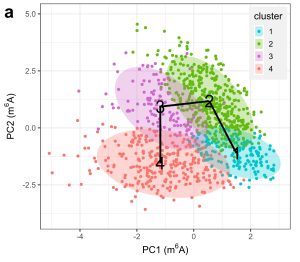16 Dec 2024

Recently, The paper titled "ESG Disclosure in Supply Chains: A Systematic Literature Review" co-authored by Professor Lujie Chen and doctoral student Fangxu Yan has been accepted by Production Planning & Control and will be published soon. This journal is classified as an ABS 3, ABDC A-category and Tier 1* journal, with an impact factor of 6.1, and it has a relatively high influence in the academic field.
As the importance of environmental, social, and governance (ESG) issues in corporate strategies has been increasingly prominent, enterprises are facing greater pressure to demonstrate their commitment to sustainable business practices. The research of Professor Lujie's Chen team has delved deeply into how supply chain management (SCM) factors can drive more effective ESG disclosure, revealing the key drivers, actions, and outcomes, and providing important theoretical basis and practical guidance for enterprises' ESG practices at the supply chain level.
Research Highlights
- Drivers of ESG Disclosure
One of the core findings of the review is that buyers' legitimacy, supply chain integrity, and sustainable risk management play crucial roles in driving ESG disclosures across the supply chain. First, buyers often set the tone for ESG reporting by demanding higher standards of transparency and accountability from their suppliers. In return, suppliers who align their practices with buyers' expectations may benefit from enhanced legitimacy, which can improve their market position and strengthen relationships with other key stakeholders.
Second, when a company prioritizes integrity within its supply chain, it fosters an environment where ethical practices, responsible sourcing, and sustainable operations are valued at every level of the chain, from suppliers to end customers. This focus on integrity leads to increased pressure on suppliers to adopt similar values, resulting in better ESG practices and enhanced disclosures.
Finally, as organizations increasingly recognize the importance of sustainability to their long-term viability, they must integrate risk management practices that address both the direct and indirect risks associated with ESG factors. These practices push companies to be more transparent in their ESG disclosures, as they need to report on the risks they are managing, the strategies they are implementing, and the outcomes they are achieving in terms of sustainability.
- Collaborative Actions of ESG Disclosure
At the supply chain-level actions of ESG disclosure, the study highlights practices such as cooperative due diligence and collective disclosure. These actions involve buyers and suppliers working together to assess ESG risks, share data, and disclose findings collaboratively. Joint risk assessments and aligned reporting standards help improve the consistency and accuracy of ESG disclosures across the supply chain, fostering greater accountability among partners. This collective approach to ESG reporting strengthens relationships and ensures that ESG practices are implemented consistently at every level of the supply chain.
Therefore, companies should work closely with key suppliers to jointly assess and disclose ESG-related risks. Such collaborative efforts help create a more transparent and resilient supply chain, where all partners are aligned and accountable.
- Benefits of ESG disclosure to Supply Chains
The potential outcomes of effective ESG disclosure at the supply chain level include increased efficiency and resilience. Transparent ESG practices enable companies to identify inefficiencies, mitigate risks, and enhance the overall adaptability of the supply chain. In addition to operational improvements, consistent ESG disclosure helps build stakeholder trust, attracting investors and customers who prioritize sustainability. Ultimately, firms that embrace comprehensive ESG reporting can gain a competitive advantage, positioning themselves as leaders in both sustainability and operational resilience in an increasingly regulated and socially conscious market.
Professor Lujie Chen's team has been continuously delving deep into academic research. The acceptance of this paper is another important achievement of the team in the research directions of supply chain management and ESG. In the future, the team will continue to be committed to research in related fields and contribute more to promoting the sustainable development of enterprises and innovation in supply chain management.
This journal has a certain influence in the field of engineering manufacturing and provides a platform for researchers, scholars, managers, etc. in related fields to exchange and share research results. The articles published in it cover multiple aspects, such as production systems and supply network engineering, basic behaviors of production resources and systems, production strategies and related economic issues, formulation and evaluation of production policies, production planning and scheduling, contributions of new technologies to production and logistics. Meanwhile, it also focuses on research in specific fields such as inventory management, supply chain planning and coordination, lean manufacturing and Six Sigma, manufacturing system analysis, and production control. In addition, it also involves research directions such as the application of advanced technologies like Industry 4.0 and intelligent manufacturing in the production planning and control process.
Professor Lujie Chen is a Senior Associate Professor of Management at Xian Jiaotong-Liverpool University. Prof Chen is Elsevier-Stanford University World's Top 2% Scientists 2024 (the only one in IBSS). She is a Fellow of the Higher Education Academy in the UK and an expert in the fields of supply chain management and business analytics. Professor. Chen have published over 60 high-quality and impactful papers in top-tier journals such as the Journal of Operations Management (UTD 24), Harvard Business Review (FT50), International Journal of Operations and Production Management (ABS 4), British Journal of Management (ABS 4), and European Journal of Operational Research (ABS 4) , among others. She has served as a guest editor for special issues of several respected journals such as International Journal of Operations and Production Management, Industrial Marketing Management, International Journal of Production Economics, and Journal of Business Research. She is currently serving as an Associate Editor for the International Journal of Operations and Production Management (ABS 4).
16 Dec 2024








